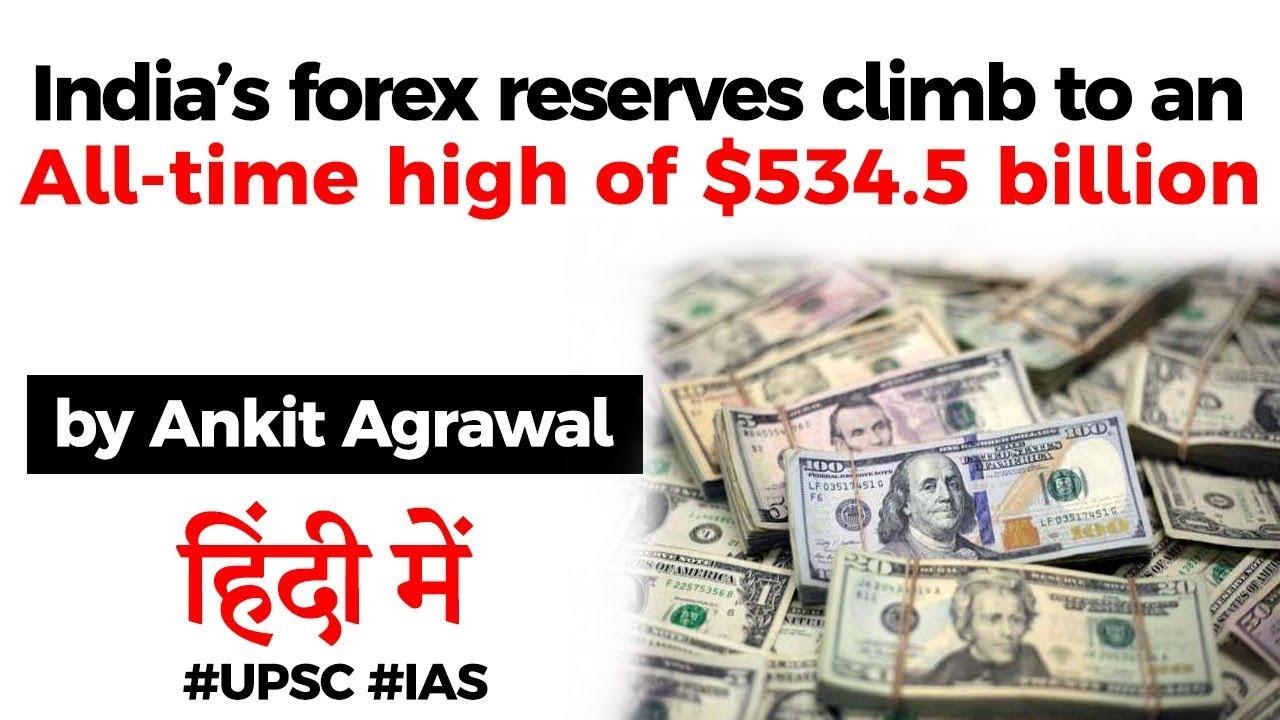Table of Contents
What is Forex Reserves?
- The International Monetary Fund (IMF) defines foreign reserves as-
- External assets that a country’s monetary authority can use to meet the balance of payments financing needs.
- Most nations hold the vast majority of their foreign currency reserves in S. dollars, followed by euros.
- Foreign currency reserves are vital to a nation’s economic well-being.
- Without adequate reserves, an economy can grind to a halt, and a country may be unable to pay for critical imports, such as crude oil etc.




- So, what led to this rise?
FPI inflows
- A sharp rise in FPI inflows following the government’s decision in September to cut corporate tax rate.
- Between April and December 2019, FPIs pumped in a net $15.1 billion, according to the RBI.
FDI inflows
- Between September 2019 and March 2020 foreign direct investments stood at $23.88 billion and in April and May it amounted to $5.9 billion.
- Market experts say that a lot of FDI has also come in June and July too, especially the Rs 1 lakh crore plus investment by global tech giants in Jio Platforms.
crude oil prices
- In January 2020, Brent crude was trading between $60 and $70 per barrel.
- Brent crude oil prices fell to levels of $20 per barrel towards March end, it dropped further and traded between $9 and $20 in April.
- Crude accounts for almost 20 per cent of India’s total import bill.
Dip in gold imports
- Gold which was a big import component for India witnessed a sharp decline in the quarter ended June 2020 following the high prices and the lockdown induced by the Covid-19 pandemic.
- According to the World Gold Council (WGC), gold imports plummeted by 95 per cent to 11.6 tonnes in the quarter as compared to 247.4 tonnes in the same period a year ago due to logistical issues and poor demand.
Import savings
- Lockdown across countries in response to Covid-19 pandemic impacted global trade.
- This has resulted in a sharp dip in import expenditure — electronics, gold and also crude oil prices among others.
How does it help?
- The rising forex reserves give a lot of comfort to the government and the Reserve Bank of India in managing India’s external and internal financial issues at a time when the economic growth is set to contract by 5% in 2020-21.
- It’s a big cushion in the event of any crisis on the economic front and enough to cover the import bill of the country for a year.
- The rising reserves have also helped the rupee to strengthen against the dollar.
- The foreign exchange reserves to GDP ratio is around 15%.
- Reserves will provide a level of confidence to markets that a country can meet its external obligations


Latest Burning Issues | Free PDF























 WhatsApp
WhatsApp